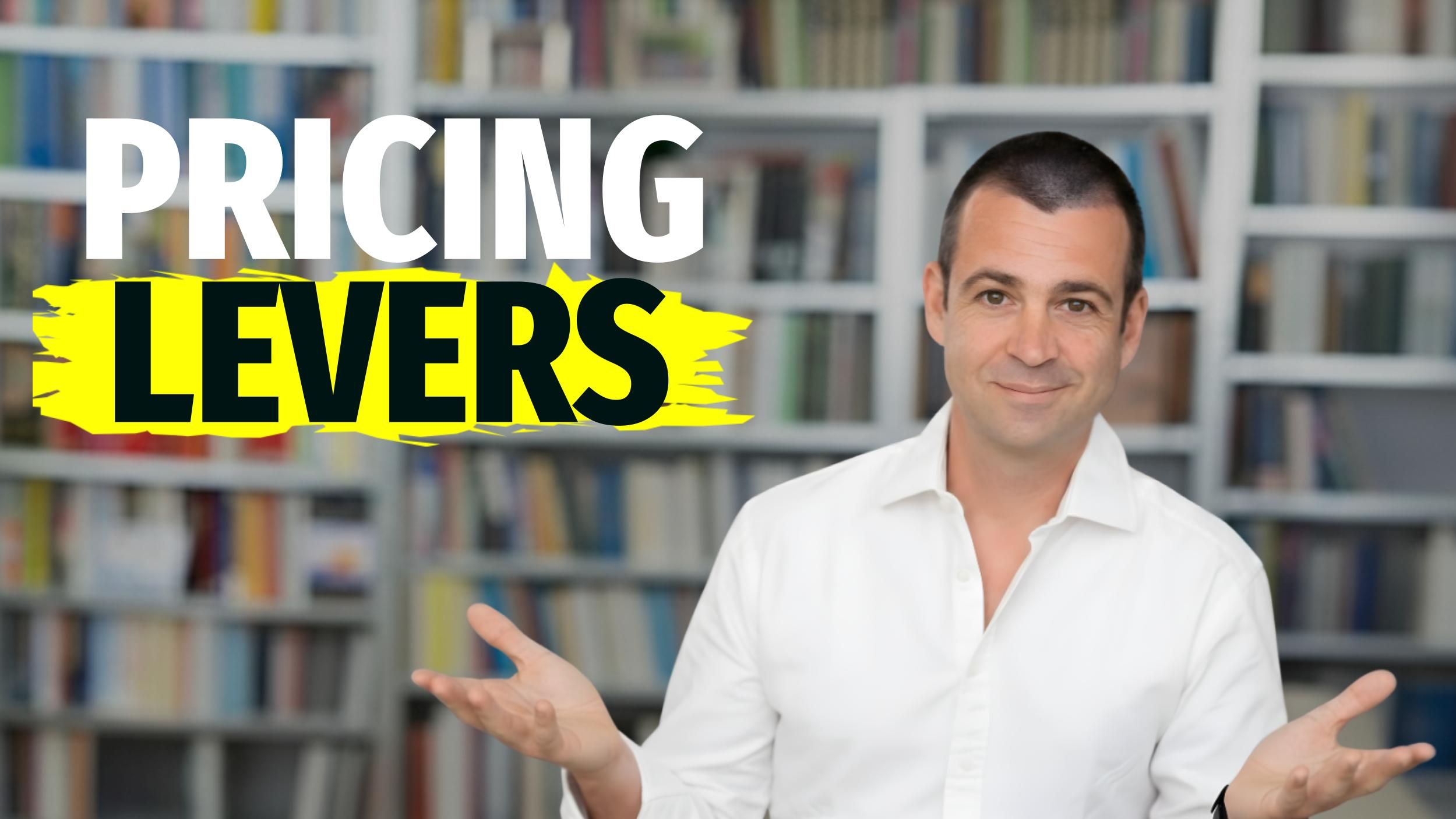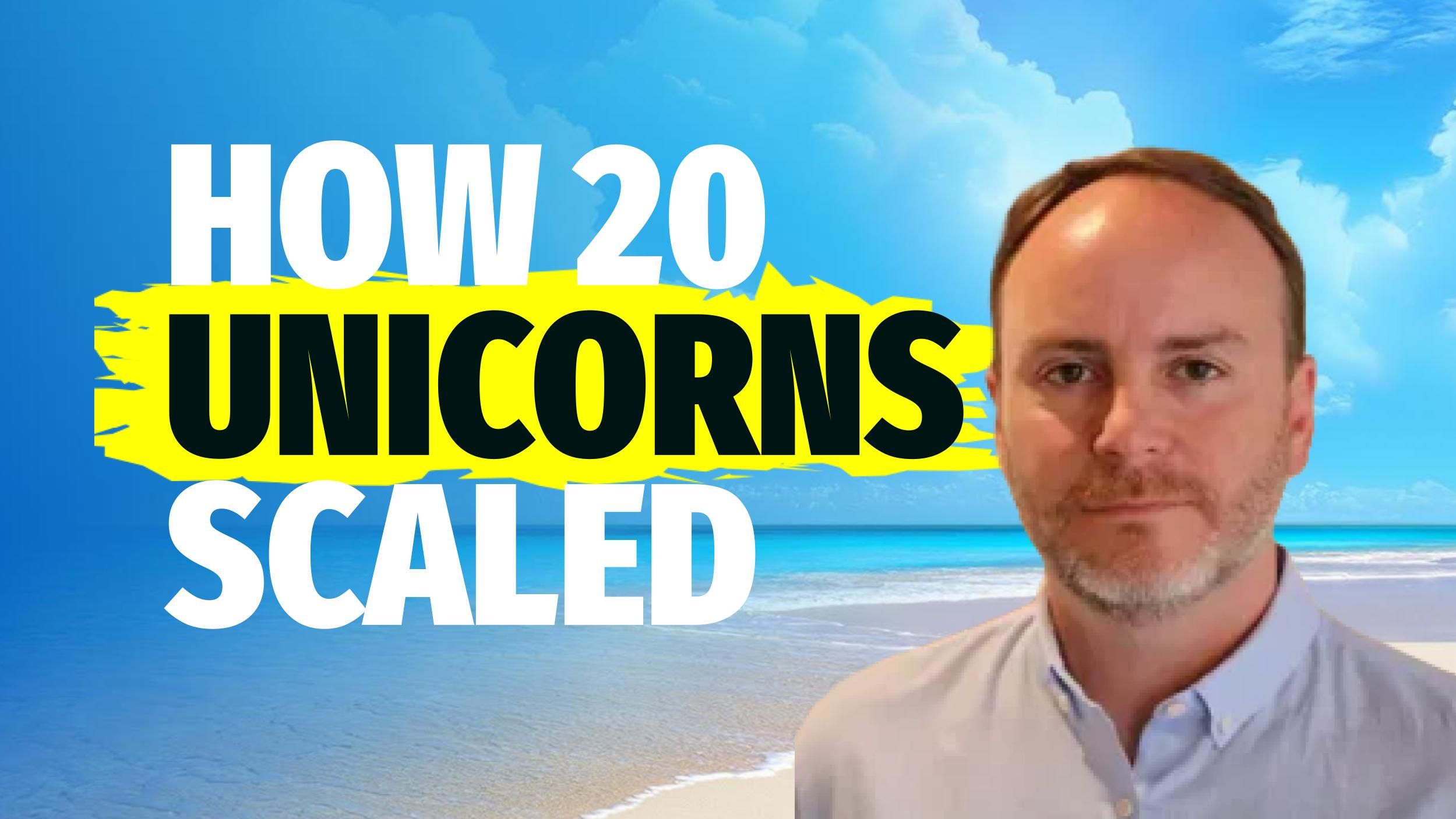
Women in Finance Power with Joy Schoffler | STRATEGY SPRINTS 156
In this episode, Simon and Joy, the partner at Ascendant Industries, will talk about her tips for CEOs to overcome the chaotic times during the pandemic through M&A and solid mindset. Joy Schoffler is the partner at Ascendant Industries, a private equity company specializing in industrials, defense, manufacturing, business advisory, and digital companies. Join and listen how expert in private equity field advises about your company’s growth during COVID-19.
Three valuable insights:
- During recession, you can potentially grow and expand your business through M&A.
- For CEOs and leaders, having a support network and people with relevant experiences are critically important.
- In private equity, there're many opportunities to expand the portfolio, both in strong markets or chaotic markets.
Simon (00:14):
Welcome back everybody to the strategy sprints podcast. I'm your host Simon Severino. Today with us and the partner at Ascendant Industries, a holding company, investing across defense, industrials, business advisory, and digital enterprise. Welcome, everybody, Joy Schoffler.
Joy (00:34):
Thank you. It's great to be here.
Simon (00:36):
So cool to have you here. We will explore why you have options right now. Your business can do M&A and should face the recession and why you are not alone, and you should map out your options right now. Joy, what are you currently creating?
Joy (00:58):
So right now, we are currently purchasing a shipyard, a middle-market shipyard. And we're also looking at a couple of other deals in the medical, marine space, as well as robotics, and infrastructure repairs space. So kind of… you know, boring businesses that lead to exciting profits.
Simon (01:27):
What are the criteria for you to invest in a business?
Joy (01:32):
So typically the revenue needs to be at least $20 million. So we're typically investing in top line of 20 million to 150 million and above. We’re primarily in spaces where it's defense, industrials, manufacturing, aviation, and logistics. So we're kind of… their traditional brick and mortar businesses are really our specialties and areas where a team can add values. So we want to go in and basically help the company grow, help, you know, be able to get contracts, be able to expand or execute a roll-up strategy where we're purchasing additional companies in the similar industry to maximize overall returns.
Simon (02:30):
And your first CEO tip is about exploring M&A. Can you unpack that?
Joy (02:35):
Absolutely. So, you know, one of the things especially, you know, if we do go into an economic downturn, I think a lot of companies’ CEOs and leadership, they don't necessarily think of themselves as, okay, I can sell my business as a potential exit strategy or a way to grow, continue growth, through the downturn. And so, as a company owner, as a CEO, there're lots of options available to you at whether that's going to, you know, competitors in your industry, private equity shops looking for businesses that have some synergies there and so you guys both share the same customer base… There're lots of different ways that you can potentially grow through recessions through mergers and acquisitions. And that could even be, you know, looking at if you're the lucky one in a position where your business is doing good. You could use this as a time to grow as well. So looking to see how can I acquire my competitors during this time or acquire smaller suppliers. There're all sorts of interesting ways that you can continue your growth through economic downturns. And if anything, it poses more opportunity because valuations can be a bit lower and there can be some opportunity to still continue to purchase things at lower prices.
Simon (04:13):
The second one is… we will face a recession, and what's your advice on how to do that and how to manage?
Joy (04:23):
Yeah, so, I mean, first and foremost, I think it's looking at what are the things on your… what are the things you're spending money on that help your company grow? So, you know, there're lots of operational things that maintain the companies, kind of maintain where you are, but making sure that you're not discontinuing all investment in your business, if it can potentially add additional value. If you're in an industry where there’re still growth opportunities, (but) there're lots of industries that have been hit by the virus, so depending upon where you are as a company, you may be in a position where you need to just kind of stay afloat through this time or look through opportunities to, you know, to possibly sell your company or merge with another company, so that you can stay survive through this time.
Joy (05:25):
You know, for some companies, it's about survival, whereas others it's about looking at, okay, how can I use this time to grow and expand? So it's really doing an honest evaluation of your business and seeing like, am I in a position to expand or grow? Am I in a position where I need to just tread water until, you know, we have some therapeutics or something that will make COVID go away? You know, what is the position that I'm in and how do I develop a plan to not only survive this, but thrive through it.
Simon (06:01):
It's short, thank you to our sponsors.
Simon (06:14):
I'm curious, what did you currently change your mind about?
Joy (06:19):
Hmm, gosh, that's such an interesting question. I think what I have currently changed my mind about is the importance of staying up on current events in the news. I think it's, you know, lately that… it's always been important to me to stay up to date on what's happening, but I think lately, it's even more important to just have the peace of mind and to kind of keep my head down and make the right next decision, because I think it can be a bit of a rabbit hole with where the head world is at, where the news media headlines are at this current moment.
Simon (07:05):
Absolutely. I usually never check the news, and especially not the local news, but nowadays I check them every morning, not every evening because I would sleep very bad. But in the morning, every day.
Which books or podcasts have recently touched you?
Joy (07:28):
I've recently read, Never Split the Difference, which was written by an ex-FBI hostage negotiator, which is a fabulous, fabulous book.
And then I've actually been reading a lot of or listening to just a lot of sci-fi. So kind of just keeping my mind off things in my free time as well. So I think it's good to have a balance of both things that help improve your creativity as well as, you know, growth and your skillset.
Simon (08:05):
Absolutely. And you can pick only one person to give the Strategy Award, who is this person?
Joy (08:15):
Oh, gosh. You know, I would say, oh, that's such a tough one. There're so many good candidates out there for the Strategy Award. So I, you know, I think Muhammad Yunus is probably my top pick. I love what he's done with micro-finance. He's really the father of micro-finance. And so he's somebody I've admired for decades. Just such an incredible man, who's helped so many small businesses and entrepreneurs throughout the globe be able to thrive and he's the founder of an entire industry in peer-to-peer lendings. So he'd probably be my choice.
Simon (09:05):
Beautiful. And your third CEO tip is that we are not alone. We should sit down, maybe with somebody and map out our options.
Joy (09:16):
Absolutely. You know, I think so many people as CEOs, you kind of… it's harder to reach out for help a lot of times, you know, it's, you kind of feel like the weight of the world is on your shoulders, but to have a support network and to have people who have been there is so critically important. So one of our portfolio companies is called Distinctive Edge Partners and the premise behind Distinctive Edge is that they bring in world leaders from, you know, politics, from industry from all over, and there, they do hourly strategy sessions or board advisory or intern roles with companies. And so, there're so many options available as, you know, as the CEO to get really expertise than help. And I know you guys have an amazing program as well through your sponsor that I just saw that also really helps you on, you know, day to day. So, I would say don't be afraid to go and look for resources that can help you both on a regular one-on-one coaching and mentorship perspective, as well as you know, there're world leaders available to you as well, even if you don't necessarily see it on first… it doesn't come to mind. They're absolutely available and willing to help.
Simon (10:47):
And I like this topic of seeing the options in the crisis, this kind of yin and yang at once that we are experiencing, because, yes, there is an economic downturn coming, yes, there is a huge shift of everything that we know, and the whole order of things are changing, and nobody knows how it will reorder. So we are learning to let go of a lot of stuff. And many of us have a cash crunch somewhere, but on the other side, there are opportunities emerging at the very same time. You can buy companies, you can invest right now in Amazon, in Tesla, in PayPal at much better prices, if you do it from a place of analytic and calm. So how did you go through all these funky 2020 in terms of the bads and the goods emerging?
Joy (11:51):
Absolutely. So, you know, in private equity, I think we always see it as there're so many opportunities whether it be in strong markets or whether it be in, you know, markets that are going through chaos. So, you know, coming from a position where we invest in companies if anything, we really use this as an opportunity to expand our portfolio. So we're actively out there looking for companies to invest in, looking for opportunities to deploy capital and to help bring companies into our holding companies so we can help grow and expand their market shares. So business doesn't stop. There're all sorts of new opportunities when you have down markets. And so, you know, we're just out there really actively looking for companies that are in these spaces. So we can not only go in and purchase them at valuations that make a little bit more sense, but also we can help, you know, expand their operations and help them get new contracts and help them thrive in growth through these difficult times as well.
Joy (13:14):
Unlike some companies, we actually keep the senior leadership team on, and we really look for teams where we can go in. We buy majority ownership, but we have, we make sure that our previous owners or managers have at least 30% ownership in the company after we make our investment, because we want long-term partners where we can take a small pie and we can grow up much bigger. So everybody has a bigger share in the end.
Simon (13:39):
What are trends in the industries you're in that excites you and that you look for?
Joy (13:46):
Absolutely. So I'm excited by infrastructure repair, fairly boring topic, but very exciting to me. So, you know, there's going to be a lot of investment, especially in the US in infrastructures. So as we look at opportunities there, the shipyard that we're buying does a lot of…, is helping to build a seawall that protects against climate change. We are going in and helping the shipyard become one of the only in the United States that meets requirements or for basically utilizing non-leaching paint. So we're protecting the environment there as well. So there's what I'm really excited about is the opportunity to invest and make an impact simultaneously. How can, you know, as we're, as a country and globally, there's a lot of stimulus going into infrastructure repair and creating jobs there to help jumpstart the economy by reinvesting into manufacturing in the communities and all of the different things. So I'm excited to be part of that and to make it more environmentally friendly and more efficient.
Simon (15:12):
What’s up next? What are your next big goals or launches?
Joy (15:17):
So our next big goal is just to continue to buy companies. So that's what I'm more excited about. Next is to continue to look for opportunities to partner with world-class CEOs and really help grow industries.
Simon (15:36):
Absolutely. Who should be my next guest?
Joy (15:40):
Hmm. Gosh, there're so many good people. So I would say, for your next guest, you should have Stephen Ferrando of distinctiveedge.partners on. He was a former managing director of e-trade and absolutely just a phenomenal business leader.
Simon (16:05):
Super cool. And where can people stay in your orbit and find you and read more about you?
Joy (16:12):
Yeah, absolutely. So I'm an advisor atdistinctiveedge.partners, which is my portfolio company I was talking about, as well as a partner at Ascendant Industries. So those are the two places to find me.
Simon (16:29):
Thank you so much joy for being here, and come back soon!
Joy (16:31):
I look forward to it. Thank you for having me.
Get our expert sales tips delivered
By submitting you agree to receive our weekly Strategy Sprints Newsletter as well as other promotional emails from Strategy Sprints. You may withdraw your consent at any time via the “Unsubscribe” link in any email or view our privacy policy at ant time.










